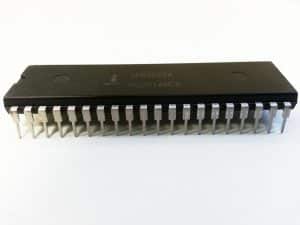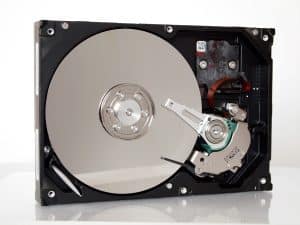Molecular Memory: DNA Data Storage
Molecular memory is a term that has been gaining a lot of buzz in the tech world in recent years. It may sound like something out of a sci-fi movie, but it is actually very real and has the potential to change the way we think about data storage. So, what exactly is molecular memory? In simple terms, it is the use of DNA as a storage medium for digital data. Yes, you read that right – the same DNA that carries our genetic information can now be used to store digital data. This emerging technology has the potential to revolutionize the way we store and retrieve information, and it’s all thanks to the amazing properties of DNA.
The Basics of DNA Data Storage
To understand how DNA data storage works, we need to first understand what DNA is. Deoxyribonucleic Acid, commonly known as DNA, is a molecule that carries genetic instructions for the development and functioning of all living organisms. It is made up of four chemical bases – adenine (A), guanine (G), cytosine (C), and thymine (T). These bases are arranged in a specific sequence that determines an organism’s genetic code. It is this unique sequence that makes DNA an ideal candidate for data storage.
Scientists have been able to manipulate the DNA code to store digital data by converting the binary code of zeros and ones into the letters A, G, C, and T. For example, the binary code 01000100 can be converted to the DNA code AGCTTC. This encrypted DNA code can then be stored in a test tube or on a small chip. Retrieving the data is just as simple – the DNA is sequenced and decrypted back into binary code, which can then be read by a computer.
The Advantages of DNA Data Storage
So, why are scientists so excited about using DNA as a storage medium? The answer lies in the incredible storage capacity and durability of DNA. Just one gram of DNA can hold up to one billion gigabytes of data, making it the densest and most efficient storage medium known to man. A single DNA strand can theoretically store all the digital data in the world. This means that we can store vast amounts of data in a fraction of the space currently required by hard drives and data centers.
Moreover, DNA has an incredibly long lifespan. While hard drives and other storage devices have a limited lifespan of a few years, DNA can last for thousands of years when stored properly. This makes it an ideal medium for archiving and preserving important historical and cultural information for future generations.
The Challenges of DNA Data Storage
Despite the promising potential of DNA data storage, there are still some challenges that need to be addressed before it becomes a mainstream technology. One of the major challenges is the high cost of DNA synthesis and sequencing. As of now, the process of converting digital data into DNA and vice versa is still expensive and time-consuming. However, with advancements in technology, scientists are developing more efficient and cost-effective methods for DNA synthesis and sequencing that could make this technology more accessible in the near future.
Another challenge is the potential risk of data corruption during the storage and retrieval process. DNA is a complex molecule and any errors in sequencing or decoding the data could result in loss of information. Scientists are working on improving the efficiency and accuracy of DNA sequencing to minimize the risk of data corruption.
The Future of DNA Data Storage
The potential of DNA data storage is vast, and its future looks bright. It has already been successfully demonstrated in various experiments, such as storing books, photos, and even a movie in DNA. However, it may still be a few years before it becomes commercially viable and replaces traditional storage methods. Nonetheless, the potential applications of this technology are endless, from storing vast amounts of data for businesses and governments to preserving our rich cultural and historical heritage.
Final Thoughts
In conclusion, the field of molecular memory or DNA data storage is an exciting frontier that could change the way we store and access information. This technology has the potential to not only store massive amounts of data but also preserve it for future generations. While there are still challenges that need to be addressed, the rapid advancements in DNA sequencing and synthesis are bringing us closer to realizing the full potential of molecular memory. Who knows, in the near future, storing data in DNA could be as common as storing it on a USB drive.








